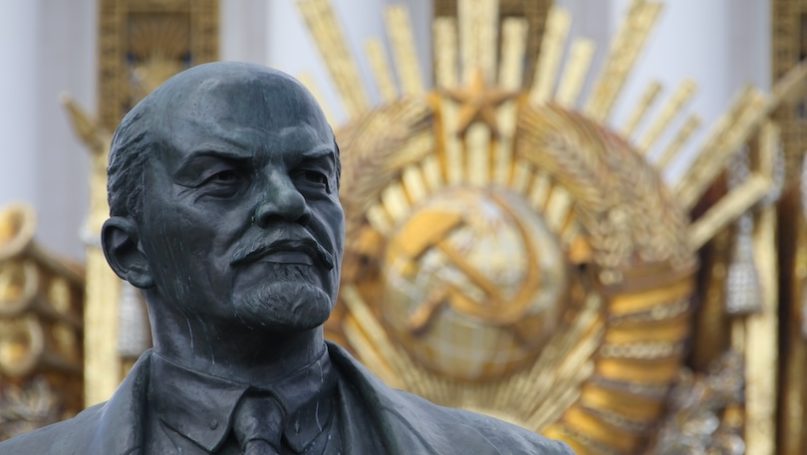
The Constitution of the People’s Republic of China states that the Chinese people move forward under the leadership of the Communist Party of China and the guidance of Marxism-Leninism – as well as Chinese leaders’ thought including Xi Jinping Thought on Socialism with Chinese Characteristics for a New Era (Xi Jinping Thought). Xi himself always underlines the urgency to uphold Marxism-Leninism in creating national prosperity, resilience and progress. 21 January 2024 was the 100th anniversary of the death of Lenin. Yet, his anniversary went uncelebrated in China. This article aims to answer why the Chinese leadership keeps promoting Leninism without celebrating the figure behind the ideology?
Firstly, the Chinese Communist Party – like other communist powers – is obsessed with regime longevity. The corpses of Lenin, Mao Zedong, Kim Il Sung and Ho Chi Minh are mummified to assert communist eternal reign. Unlike Marx – the philosopher and thinker, Lenin was a political leader who founded the doomed Soviet Union. In China, many rigorous studies have been conducted to find the factors behind the collapse of the Soviet Union in 1991 lest the former suffer the fate of the latter. Xi attributes the wavering of ideological discipline to the Soviet’s disintegration.
On one hand, the Chinese Communist leaders put emphasis on Leninism as an ideological guidance; while on the other hand they do not want to suggest to their people that Communist regime does have a lifespan like that of the Soviet Union. This explains why there was no official commemoration of the 100th anniversary of the Bolshevik Revolution in 2017 by the Chinese Communist Party.
Secondly, Xi is conducting a massive ideological project of integrating Marxism to the Chinese specific realities and Chinese traditional culture. This political project is known as “Two Integrations”. Since Deng Xiaoping’s Reform and Opening, China has been successful in integrating Marxism to the Chinese context by promoting development and maintaining the Communist Party political monopoly. However, China needs more effort to integrate Marxist basic tenets to its traditional culture.
Since the Deng era, Chinese traditional thought, particularly Confucianism, has occupied a respected position in the political discourse of the Chinese Communist Party. The Chinese Communist Party can only be legitimate if it becomes the vanguard of Chinese culture and civilization. Xi himself draws his legitimacy from the rejuvenation of the Chinese nations and cements his core position in achieving it. Only Marxism-Leninism that is contextual and relevant (as formulated in the Xi Jinping Thought) will thrive. Lenin applied Marxism in the context of the Soviet Union (and failed eventually). Hence, remembering the 100th anniversary of Lenin’s death is irrelevant to Xi’s project.
Thirdly, the silence of Chinese leaders during the centennial of Lenin’s death might relate to Putin’s denouncement of his role in Ukraine’s secession from the Soviet Union. Putin attributes the independence of modern Ukraine to Bolshevik and calls the country Vladimir Lenin’s Ukraine. In the midst of Russia-Ukraine War, it is understandable that Beijing distances itself from Lenin. So far, Beijing has refused to criticise Russia’s aggression – with whom it establishes “no limit’ partnership – or even to call it an invasion.
All in all, the core of communist doctrine is preserving the rule of the Communist Party. The reinforcement of the Chinese state ideology means ensuring the population to embrace the Communist Party as the sole legitimate institution to lead and govern the country. Xi Jinping summarizes this idea in his 2017 statement: “The Party, the state, the military, the civilians, and the education sector: east, west, south, north and the centre – the Party leads everything”.
China does not embrace everything communist. The communist ideology that supports the reign of the Communist Party is the one with Chinese characteristics. Therefore, Marxism-Leninism will continue to undergo Sinification. Marx, the philosopher who imagined a society without human exploitation and alienation will be remembered in China. On the contrary, Lenin, the political figure who created the ill-fated Soviet Union will not enjoy the same approval as Marx, Mao or even Xi.
Further Reading on E-International Relations
- Rival Securitising Attempts in the Democratisation of Hong Kong
- When Silence Speaks Louder than Words: Indian Discourses on the ‘China Threat’
- Opinion – Former China-Premier Wen Jiabao’s Censored Essay
- Opinion – Emerging Elements of a New US-China Cold War
- Opinion – Factors Giving Rise to Xi Coup Rumours in China
- The American Public’s Doubts over Democratization in China